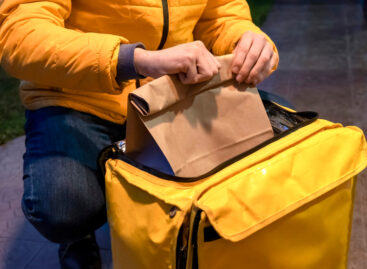Will the ‘green wave’ affect this year’s Christmas season?
NMS Hungary’s nationwide Hungarian panel study, done with 800 respondents, has been focusing on how Hungarian consumers intend to spend the Christmas period and whether the recently adopted environmentally conscious attitude will influence their spending.

Adrienn Dorogi
senior researcher
NMS Hungary
Two thirds of household receive guests or visit relatives and friends during the Christmas holiday. People start thinking about presents before November and commence shopping if they find the right thing, so the majority purchases all presents by mid-December. Families begin cooking and baking one week before Christmas, while the big clean is done 2-3 weeks before the festivities.
About 30 percent plan to buy new Christmas decorations, but for not more than HUF 10,000. It is interesting that 45 percent of respondents already own an artificial Christmas tree. Half of consumers intend to spend less than HUF 15,000 on Christmas dishes and a quarter of them have a HUF 15,000-25,000 budget for this. 65 percent of consumers said they would buy Christmas presents for the same amount of money as last year, 23 percent will try to work with a smaller budget and 4 percent intend to spend more than in 2018.

Attila Seres
client service manager
NMS Hungary
One third of respondents will purchase presents for less than HUF 15,000 and 17 percent will buy nothing at all. 41 percent will get presents from a budget of HUF 15,000-50,000 and only 10 percent of families can purchase Christmas gifts for a bigger value than HUF 50,000. The typical buyer gets presents for 4-8 people, but 12 percent even surprise their best friends with a present. What are at the top of the gift list? Books, toys, cosmetics and perfumes, sweets, clothes and shoes. The majority of people like to give practical things, therefore anything can become a present, from a cheap kitchen utensil to a pair of comfy slippers. Respondents prefer to give tangible gifts to children, but 32 percent of them will buy some kind of experience (e.g. theatre tickets, a wellness weekend, etc.) for their loved ones.
Half of respondents feel that although protecting the environment is important at Christmas time, it isn’t the No.1 decision-making factor when shopping. 10 percent don’t care about this at all, while 40 percent said: It doesn’t matter that it is Christmas, one must stick to their green principles. More than half of shoppers try to avoid buying gifts with too much packaging, 50 percent don’t buy a Christmas tree and another 23 percent buy one that can planted in the garden after Christmas. 40 percent of respondents choose a packaging for presents that can be reused, while 17 percent don’t wrap their gifts at all. //
Related news
New business areas drive growth at CECONOMY – record customer satisfaction and online share
🎧 Hallgasd a cikket: Lejátszás Szünet Folytatás Leállítás Nyelv: Auto…
Read more >Related news
Farewell day at the 60th anniversary EuroShop trade fair
🎧 Hallgasd a cikket: Lejátszás Szünet Folytatás Leállítás Nyelv: Auto…
Read more >NAV: Women’s Day inspections begin
🎧 Hallgasd a cikket: Lejátszás Szünet Folytatás Leállítás Nyelv: Auto…
Read more >








